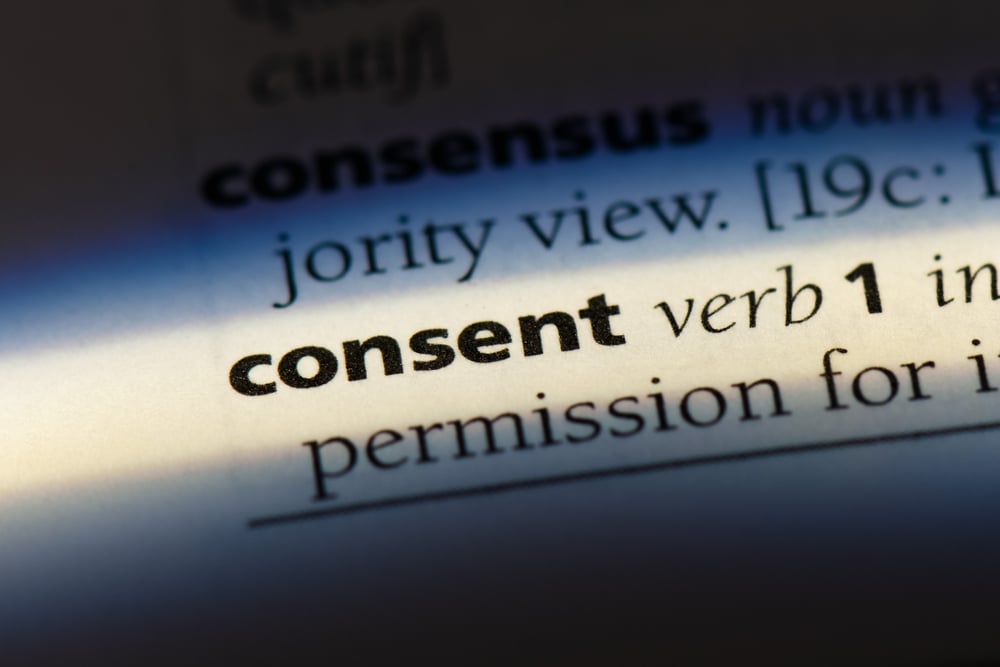Teaching Issues of Consent and Child Safety

Sexual violence and issues of consent are justifiably under close scrutiny at the moment in Australia. The alleged behaviour of parliamentary members and staff has raised discussion about toxic work environments. There has also been an online petition containing thousands of testimonies of teenage sexual assaults which made for confronting reading.
Many of the commentators have asked, ‘Why are we not teaching consent in schools?’ The answer is, we are. It is important that you know Santa Maria College takes this task very seriously. We are addressing consent and respectful relationships in developmentally appropriate ways all the way through the school.
It is important at this point to recognise the partnership between home and school in any emotional or social education, including consent. Parents are the primary educators of their children. Schools support parents by delivering specialised instruction, however, families have their own beliefs and values around learning of this kind. We believe that together, we can prepare our students with the factual information and guidance they require.
Our Framework
At Santa Maria College we fall under the governance of Mercy Education and Catholic Education Western Australia. Both of these organisations demand our children are well informed and learn in an environment that has a culture of respect and empathy.
All Catholic schools in Western Australia comply with the Childsafe Framework. The framework is designed to ensure “We lead and support a mindset and practice of modelling healthy and respectful relationships to prevent problem behaviours and abuse.”
The nine components of the framework include:
- Support and Healing
- Voice of the Child
- Culture
- Governance and Leadership
- Policies and Procedures
- Human Resource Practices
- Investigating and Reporting
- Risk Management
- Quality Assurance
Our Curriculum
The curriculum component of our approach is mandated and endorsed by Catholic Education Western Australia and provided by the South Australian Department for Education. The curriculum is called, Keeping Safe: Child Protection Curriculum. It is an evidence-based, whole-school approach to relationships and child safety education.
Keeping Safe: Child Protection Curriculum is delivered in the learning area Health & Physical Education. Staff delivering the curriculum are carefully and specially trained.
Each year all parents receive an email from the Head of Health & Physical Education, Julie Schubert. She outlines what will be covered in that year and why it is important. You can find a link to the resources sent out here: http://tiny.cc/KSCPC-ParentCarerInfo
The areas covered in Keeping Safe: Child Protection Curriculum include:
- The right to be safe
- Risk-taking and emergencies
- Psychological pressure and manipulation
- Rights and responsibilities in relationships
- Identity and relationships
- Power in relationships
- Trust and networks
- Privacy and the body
- Recognising abuse
- Cyber safety
- Domestic and family violence
- Strategies for keeping safe
- Network review and community support
Julie Schubert says, “The curriculum is designed to empower girls to make choices, articulate those choices and act in a way that reflects their values.”
The work done in Health Education is complemented by our own Social and Emotional Curriculum presented in Pastoral Care Time. This curriculum explicitly delivers notions of self-awareness, social-awareness, self-management, social-management, and spirituality.
We also engage speakers including:
- Speakers from WA Child Safety Services who deliver talks titled Consent and Coercion in Year 10 and Domestic Violence in Year 11.
- Paul Dillon who speaks to Years 10, 11 and 12 students about drugs and alcohol and issues that arise in party culture.
- Our school psychologists, Deans of Students and other specialist staff develop programs and present on issues of healthy relationships and self care.
Related topics also arise in subjects such as English, Science, Information Technology, Humanities & Social Sciences and Dra
In conclusion
Schools are teaching healthy relationships; however, we do need to be aware that more is needed. Australian culture is home to many toxic attitudes and behaviours that we must always be evolving to counter.
In partnership with you, we commit to ensuring our girls are safe now and well prepared for life beyond school. That will involve all of us accepting that we need to be open to reflection, discussion and consistent review to ensure we are keeping up with the needs of our young people.
If you or someone you know is impacted by rape or sexual assault, call 1800RESPECT on 1800 737 732 or visit www.1800RESPECT.org.au. In an emergency, call 000

Santa Maria Teams Shine in Term 1 Sports
Santa Maria had a huge number of girls in the IGSSA AFL and Volleyball competition with strong results for a number of teams.

Lee-Elle’s Insights from the ‘Make it 16’ Forum
Lee-Elle Cooper is a passionate Year 12 student who advocates for youth engagement and political participation. She has recently returned from the Make It 16 Forum in Canberra.

With Laurissa Knowles From Valley Depths to Mountain Peaks (1993)
Laurissa Knowles (1993) has had an incredible career journey so far, from Santa Maria College Teacher to Celebrant and Councillor.
- ConnectingLearning2Life, Featured
Author: Santa Maria College
Santa Maria College is a vibrant girls school with a growing local presence and reputation. Our Mission is to educate young Mercy women who act with courage and compassion to enrich our world. Santa Maria College is located in Attadale in Western Australia, 16 km from the Perth CBD. We offer a Catholic education for girls in Years 5 – 12 and have 1300 students, including 152 boarders.







